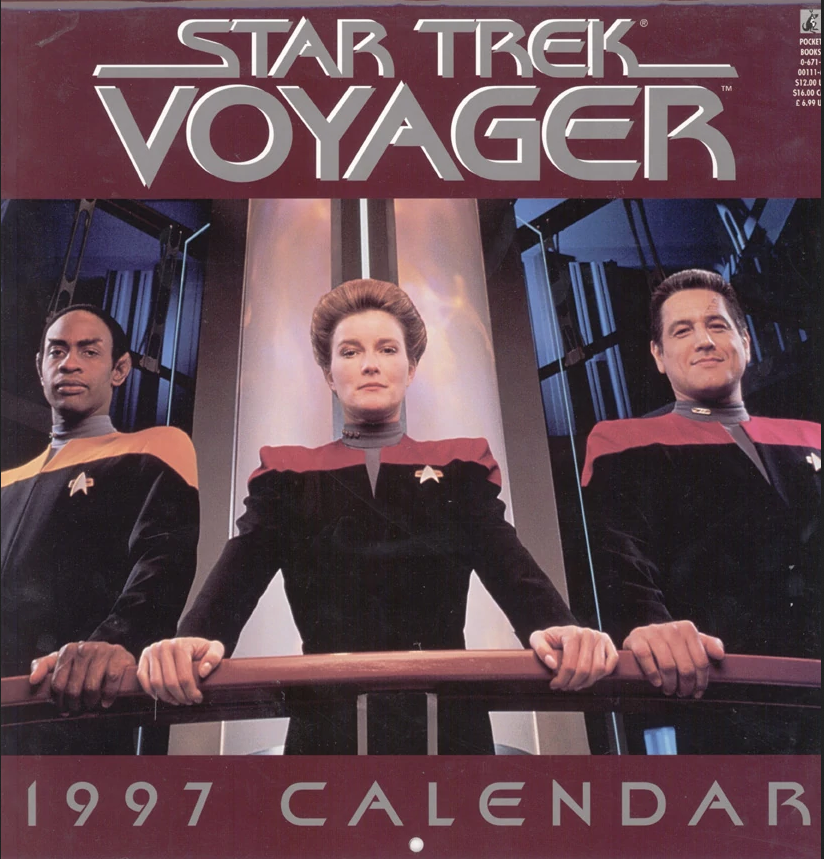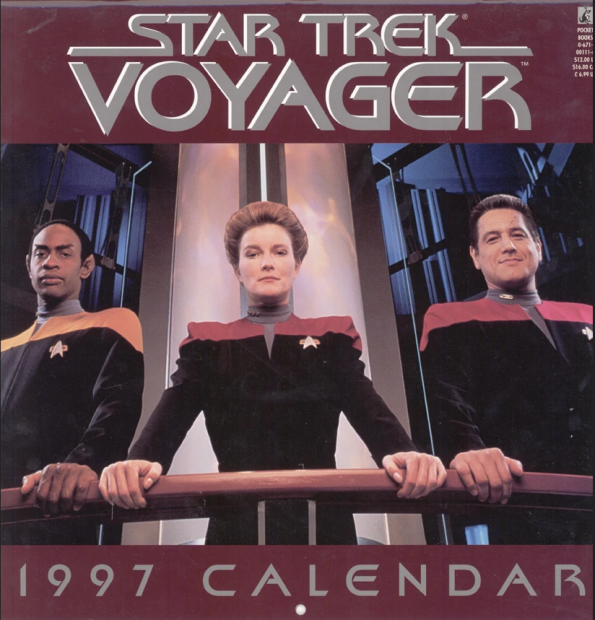Of “Lightning” – Why Trek isn’t as Popular as it Used to Be (As of 1997)
2020 UPDATE – These Star Trek reviews/opinion pieces were originally written as forum posts on the old Trekweb.com forums, back when Deep Space Nine and Voyager were still airing first-run. Those forums are now long gone, so if these passages start a bit abruptly or seem to continue an off-screen conversation, at least you know why even if the surrounding context is lost to time.

The original 3 year series “Star Trek” broke new ground, for television, by exploring adult themes and issues in a sci-fi setting. This was a risk, again, for television, since books had been doing it for centuries. Previous attempts at televised sci-fi were often hokey exercises in hero worship like “Superman”, “Flash Gordon”, “Buck Rogers”–shows where the villain was so clearly delineated that he did all but twirl his pencil-thin moustache. Even science fiction movies had, for the most part, been rather puerile (with notable exceptions like ‘The Day the Earth Stood Still”). And yet, to the casual viewer, all the sci-fi trappings were there–heroic humans, evil Klingons, even romp-n-stomp adventure (which eventually comprised some of the better episodes like ‘Shore Leave,’ ‘The Doomsday Weapon,’ ‘The Trouble with Tribbles,’ etc). Yet hidden in these trappings were intelligent pondering on our society, in a convenient TV dinner size and packaging.
I think much of the reason Trek took so long to achieve profitability, finding its success in syndication, is because it was an idea before its time. Adults who watched it were faced with thoughtful issues. Children like myself who watched it found ourselves not being underestimated. Even the adventure episodes contained intelligent themes. Science Fiction as an adult medium for television and film was a new and provocative idea, in a world where the Western was king.
But that idea has since reached fruition and acceptance. Stanley Kubrick found success in the movie arena with “2001”, transcending the sci-fi movie traditions of radioactively outsized bugs and saucer invasions. Along this vein, “Alien” showed us that the sci-fi can even be more fantastical and still hit a chord with adult audiences. Of course in these formats, sci-fi still, as it had in the fifties, played on our fears of the unknown and of the powers our science might unleash upon us.
This all changed with Star Wars, a phenomenal success only just recently overcome in Box Office Earnings (although still #1 mostly due to the rerelease). Star Wars crossed the gap, presenting archetypical stories that may not have grappled with adult issues as much as Trek, but made up for it by creating such a sense of wonder that the adults watching were made to feel like kids.
One must always remember that Trek never would have made it to movies, if not for the success of Star Wars. One’s mind boggles at the possibilities of Star Trek: Phase 2, the original proposed TV sequel that was supplanted by the Motion Picture project.
Also let us never forget that TMP, a dour and definitely adult movie, is generally considered inferior to it’s sequel, which was certainly lighter, less thoughtful, and much more of a romp-n-stomp adventure. ‘The Wrath of Khan’ owed much more to the Star Wars movies, with its plethora of space battle scenes, and its much clearer definitions of hero and villain.
TNG came about at a perfect moment in time. The Star Wars trilogy had just closed. Television had still failed to produce compelling sci-fi (Buck Rogers was childish, and Battlestar Galactica, although frequently dealing with adult plots, was simply lacking… something). TNG stepped up to the plate AT IT’S TIME, not before it’s time as TOS did. AND TNG’s true success did not come until it started adding in some of the romp and stomp. The first two seasons generally consisted of intelligent adult themes, but a marked lack of adventure or suspense. Eventually, TNG hit a magical balance. I have heard dozens of people try to define the elements that led to that success. I have yet to hear a formula that, to me, seems exactly right.
Successful Trek has always been a complex and perplexing formula, a combination of adult themes, romp and stomp adventure, character insight into human nature, a sense of childlike wonder, futuristic allegory of modern problems, and special effects and artistic design. I am often frustrated at the number of dilettante fans who seem to think that if they simply had a shot at it, they could easily, with hardly any effort, surpass TPTB in the creation of successful Trek. If that were true, we would be engulfed daily in a literal flood of quality science fiction television.
Clearly, we are not. Nevertheless, there is quite a bit more out there to find, and Trek is not a single island in an immense ocean anymore. Science Fiction both good and bad is all around us. Alternatives exist even on television, in the forms of B5, Earth: Final Conflict–even Trek has provided its own competition by running two shows simultaneously, with different focuses, as simultaneously years of episodes of the previous shows rerun in syndication. People’s thirst for the fantastical can be quenched by Xena, Hercules, Buffy and the like as well if they don’t specify science fiction content.
Has Trek’s time passed? I don’t think so. Has Trek’s time to sit in the sun all by itself with no one else even on the beach passed? Most definitely.
Trek fans are spoiled. Our expectations (and possibly those of Paramount) are too high. We are not the only player. To judge the success of subsequent incarnations of Trek against the ratings and buzz of TNG, in an arena where sci-fi is common and Trek has been around for YEARS, is to ensure that every subsequent incarnation of Trek automatically seems like a failure. Anyone in the entertainment industry will tell you that a project does not succeed or fail based solely on its own merits. Ha! They wish!
Fads come and go. The public goes with them. Which are you? A fickle member of the public? Or a loyal fan? Here is a litmus test–how many times have you seen Spock’s Brain, or Shades of Grey, or The Way to Eden? If any of these repeated tomorrow, would you watch them? Trek was kept alive by its fans before it became popular. It will be kept alive by its fans in the low tide as well.
If you truly want to disconnect yourself from preconceptions, and make an objective judgement, ask yourself this–what would you predict would happen if you flip-flop TNG with Voyager or DS9? Would Voyager or DS9, as it is today, have succeeded if it began its run in 1987, running in first-run syndication? Would TNG have its success if it never had a chance to run as the only incarnation of Trek? Or if it started up right after Voyager, and was the cornerstone of a new network?
Are you REALLY judging the show on its own merits?
Advertisement

